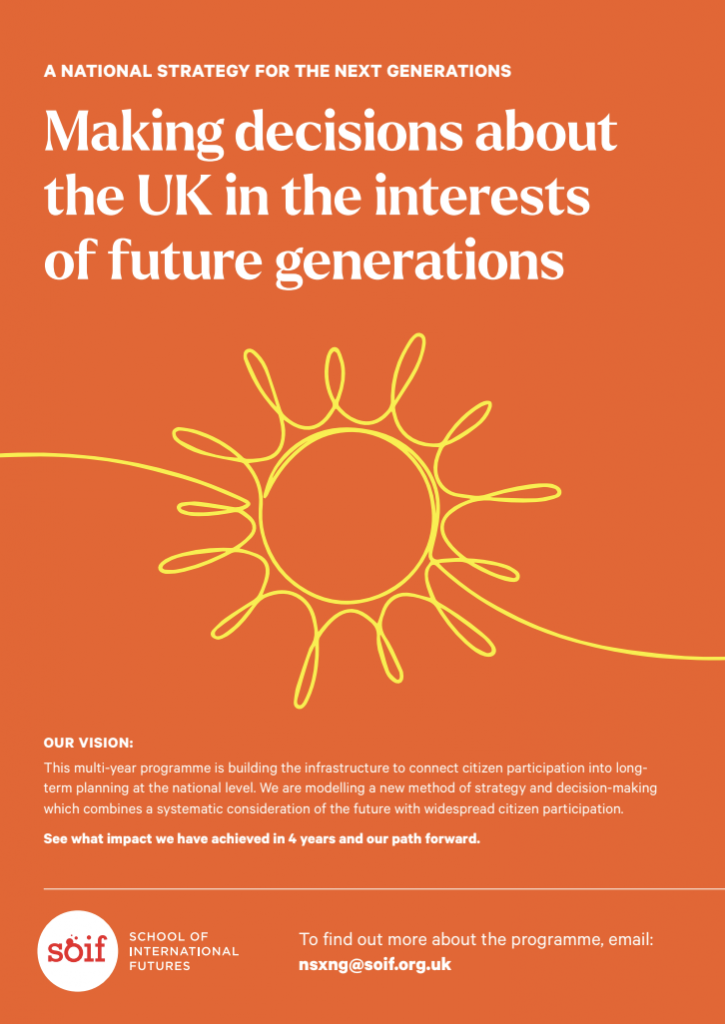Making decisions about the UK in the interests of future generations
The Challenge
From climate change and advancing AI to political polarisation and a cost-of-living crisis at home the UK is facing a proliferation of challenges – and opportunities – that require long-term, whole-of-society responses.
However the UK lacks the institutions, governance and policy processes for long-term decision-making across multiple terms of office. SOIF has therefore initiated a multi-year programme, with support from the National Lottery and the Gates Foundation, to build the infrastructure to connect citizen participation into long term planning at national level. This programme is called ‘A National Strategy for the Next Generations’ or NSxNG.

Making decisions about the UK in the interest of future generations
Our approach
The National Strategy for the Next Generations (NSxNG) programme is modelling a new method of strategy and decision-making which combines a systematic consideration of the long-term with widespread citizen participation.

We have helped citizens to think in a structured way about the future through a combination of training, facilitation and creating a community of support. We have supported dialogues about the UK’s role in the world in local communities. The programme has created opportunities to connect next generation champions to policy makers at local, regional and international level. We have also advocated for change amongst policy makers and parliamentarians.
In the last 4 years, we have collaborated with 50 partner organisations, engaging over 1000 citizens in workshops and citizens assemblies, convening current and future leaders on future of development sector, recruiting over 50 youth champions who hosted 46 intergenerational dialogues in local UK communities, and connecting to over 250 policymakers.
The Outcome
The programme has developed new insights on how citizens can work together to contribute to long-term planning. Working with our team of next generation champions we have piloted practical approaches to intergenerational dialogues. As a result citizens have developed recommendations and insights on topics ranging from climate and global prosperity, conflict and governance to technological progress and existential risk.
The programme has grown the motivation,confidence and capability of youth champions to get involved in decision-making. It has also built the capability of policy-makers to engage young people in a meaningful way and test policies for intergenerational fairness. This is evidenced by the way that programme champions and recommendations have been involved in key policy making events and forums such as the Government’s Integrated Review in 2021 and 2023, Select Committee inquiries and White Papers.
This is a long-term programme that is building towards institutional change in approaches to policy-making. There are signs that this change is underway to reflect the interests of next generations, evidenced by the liaison inquiry review, the covid inquiry and growing activity around the UN Summit of the Future.
Read more about the National Strategy for Next Generations here and get involved in the next phase of work – a sustainable, multi-year programme to build cross government capability for long term participative national planning.
